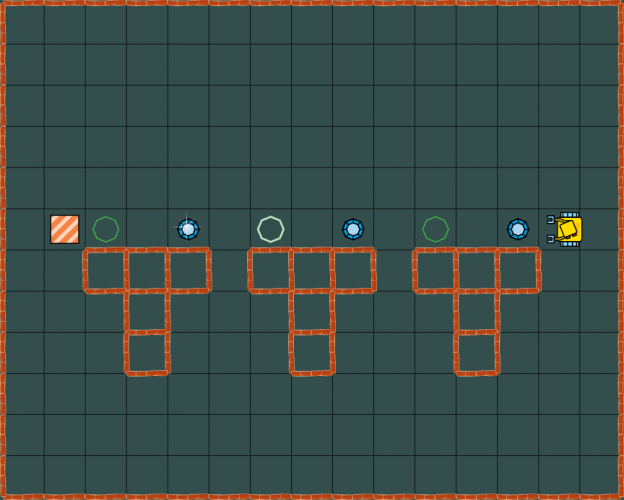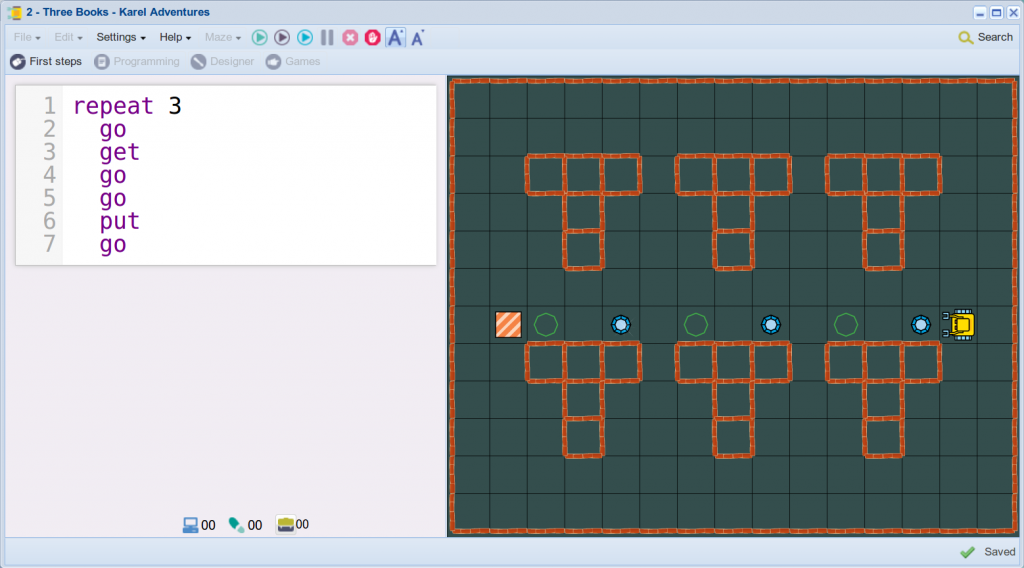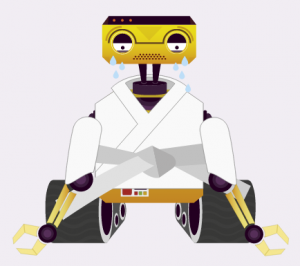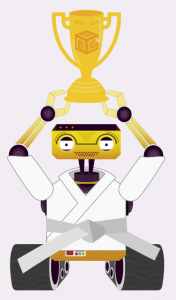What It Means
Understand the problem, find a way to attack it, and work until it is done. Basically, you will find practice standard #1 in every math problem, every day. The hardest part is pushing students to solve tough problems by applying what they already know and to monitor themselves when problem-solving.
Computer Programming Teaches Perseverance
Computer programming is 95% logic, which is math. Critical thinking and systematic problem solving skills acquired during this course will help students become better at anything they do after that. The computer has zero tolerance for unclear thinking, poor planning, and vague formulation of ideas. To solve a problem, students need to understand it perfectly, develop a crystal clear algorithm, and formulate it in the form of an accurate and flawless program. The smallest glitch means a complete failure. The Karel programming course is self-paced, meaning that students can work at their own speed. Some students love the course for the challenge, others for the rewards and certificates. They always want to go to the next level!

In this level students must figure out the sequence of operations needed to move all gems on the marks and enter the home square, and write it down using the commands “go”, “get”, “put” and “repeat”. Most students need more than two attempts to solve this level. To get a better idea of what it takes, try it yourself! *See solution below.
Computer programs hardly ever work the first time. Students learn quickly that trying harder without thinking does not help. They learn to go back, analyze where their thinking was wrong, and make adjustments.
- Try one more time…
- Success!
Since the Karel course is self-paced, the instructor has more time for one-to-one interaction with students. Some students will just take off no needing any attention at all, others will need to be encouraged to use logic and to persevere in solving problems.
*Solution


